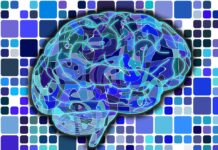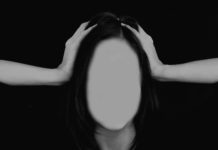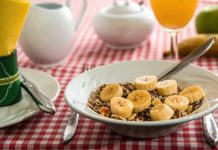Inner Fire: Healing and Recovery Without Meds
For five years, I and others worked to create a residential healing community in Brookline, Vermont, where people could recover from debilitating and traumatic life experiences, which often lead to addiction and mental health challenges, without the use of psychotropic medications. We welcomed our first six seekers to a yearlong, therapeutic and farm-based, day program last September, and we now can report on what we have learned during this time.
Outdoor Education Tied to Psychological and Academic Benefits
How the satisfaction of basic psychological needs (BPN) in outdoor education environments can peak student interest and boost intrinsic motivation.
Using Mindfulness Meditation to Cope with Suicidal Thoughts and Feelings
Suicidal torment is magnified by the loss of hope. People in life-or-death survival conditions, such as being lost in the wilderness or being held prisoner of war, will dream and plan for the future in order to make their present conditions tolerable. The critically ill heart patient expresses his faith in his upcoming surgery by making a date to play golf six weeks after the operation. But the depressed person sees no viable future. There is nothing to look forward to, no dreams to fulfill, only the never-ending hell of the eternal present.
Physical Activity Predicts Fewer Symptoms of Depression in Children
An article published in Pediatrics is the first to examine the relationship between physical activity and depression in middle childhood (years 6 to 10) longitudinally.
REFOCUS Psychosis Recovery Intervention Ready for Trials
A new pro-recovery manualized intervention – called the REFOCUS intervention – has been developed and will now be evaluated in a multisite randomized control trials. The strengths-based intervention, which focuses on promoting relationships, is outlined in the latest issue of the British Journal of Psychiatry.
Mindfulness Pain Relief Distinct from Placebo Effect
A new study demonstrates that the practice of mindfulness may ease pain in a way that is mechanistically distinct from the placebo effect. Research, published in the Journal of Neuroscience, found that mindfulness meditation not only outperformed placebo and fake meditation for pain relief but that it also activated different brain regions than the placebo treatments.
From Self Care to Collective Caring
As a trauma survivor growing up in various adolescent mental health systems, I never learned any useful self-care tools or practices. I was taught that my current coping skills (self-injury, suicidal behavior, illicit drug use) were unacceptable, but not given any ideas as to what to replace them with. No one seemed to want to know much about the early childhood traumas that were driving these behaviors. Instead, I collected an assortment of diagnoses. I was told that I would be forever dependent on mediated relationships with professionals, and an ever-changing combination of pills. The message was that my troubles were chemical in nature and largely beyond my control.
The Answers in the Attic: A Mother-Daughter Story of Overmedication and Recovery
In 1959, my mother suffered what people referred to as a nervous breakdown after my sister’s birth. I puzzled over why Mom never recovered, until I found Dad’s collection of medical records in my sister’s attic. How could anyone give a nursing mother with three small children so many drugs in such a short period of time?
Traditional Healing and Psychosis vs. the Promises of Modern Science
As noted in Anatomy of an Epidemic, the prognosis for someone experiencing psychosis is far better in developing countries than in industrialized countries. Robert Whitaker and others posit that this is due to the treatment models used in the developing world, as well as to debility and chronicity caused by psychiatric drugs themselves. I think it's also important to explore traditional tribal and village based models of helping people experiencing psychosis and examine why they may be effective. Do these traditional societies know something we don't?
Air Pollution Linked to Mental Health Problems in Children
A new study, published in BMJ Open-Access this week, found a significant link between the level of air pollution in a community and the mental health of the children living there. After controlling for socio-economic status and other potential variables, researchers in Sweden discovered a strong association between the concentration of air pollution in a neighborhood and the amount of ‘antipsychotic’ and psychiatric drugs prescribed to children. The link remained strong even at pollution levels well below half of what is considered acceptable by the World Health Organization (WHO).
Physical Activity and Exercise May Prevent Depression, Study Finds
Everyday exercise, regardless of intensity, can prevent the development of depressive symptoms.
Research Shows Mindfulness can Decrease Anxiety
A new study explores the impact of a Mindfulness-Based intervention on stress-related biomarkers in individuals diagnosed with Generalized Anxiety Disorder (GAD).
Childhood Trauma May Alter Immune Function
A new study finds an important link between childhood trauma, immune activation, and the development of psychiatric disorders.
Social Prescribing May Improve Self-Esteem and Mental Well-Being
Systematic review suggests social prescribing benefits individuals with mental and physical health issues, but more program evaluations are needed.
Nutrition, Sleep, and Mental Health
It was somewhat surprising 15+ years ago when Bonnie first began to be challenged (by psychiatrists in particular, who are always being asked about adverse side effects) to answer this question: what are the side effects of taking a broad-spectrum formula? In all these ensuing years, the answer has not changed from her first observations: people repeatedly tell us that in addition to improved mental health and cognitive clarity, they sleep better and they experience relief of constipation. Now, finally, we have evidence for the first of those two ‘side effects’ in the form of an excellent study
Responding to Madness With Loving Receptivity: a Practical Guide
In my last three blogs I posed the question- "If madness isn't what psychiatry says it is, then what is it?" Now I'm asking-...
Study Finds Meditation Can Reduce Trauma Symptoms for Inmates
Researchers found that Transcendental Meditation could significantly decrease anxiety and depression, among others symptoms.
Psychosis Diagnosis Linked With Lower Rates of Exercise
A new study finds that for those experiencing symptoms associated with psychosis, a low-level of physical activity is associated with receiving a diagnosis of a psychotic disorder.
Religion and Spirituality Protect Against Depression
In The American Journal of Psychiatry, a longitudinal study of 114 persons at high risk for depression found that those who reported more religiosity...
Omega-3 Screening for Psychiatric Symptoms?
There is a substantial body of evidence suggesting that not getting enough omega-3 fatty acids in your diet may be connected to a diverse array of psychiatric symptoms. In a new study published this month, psychiatrist Robert McNamara and Erik Messamore provide an overview of the evidence and call for screening of omega-3 deficiency in people experiencing symptoms associated with ADHD, depression, mood disorders, and psychosis.
Reforming Schools to Prevent Mental Health Issues
New research explores the use of broad-based school-integrated resiliency and mindfulness interventions to prevent mental health concerns before they occur.
Moral Enhancement Technologies are Reportedly Ineffective, Impractical, and Unwise
A new paper published in Bioethics assesses proposals to “enhance morality” through neuropharmacological and neurotechnological interventions.
Philosophers Challenge Psychiatry and its Search for Mechanisms of Disorder
Attempting to locate the mechanisms of psychiatric disorder is a step in the wrong direction and fails to challenge potentially unjust social practices.
Neuroscientists Consider the Effect of the Gut on the Brain
A review article published in the International Journal of Neuropsychopharmacology summarizes the latest research on the role that microbiota in the gut play in...
Study Explores Connections Between Diet and ‘Serious Mental Illnesses’
Study finds that individuals diagnosed with schizophrenia, bipolar disorder, and depression have diets that are more inflammatory and higher in calories.






















